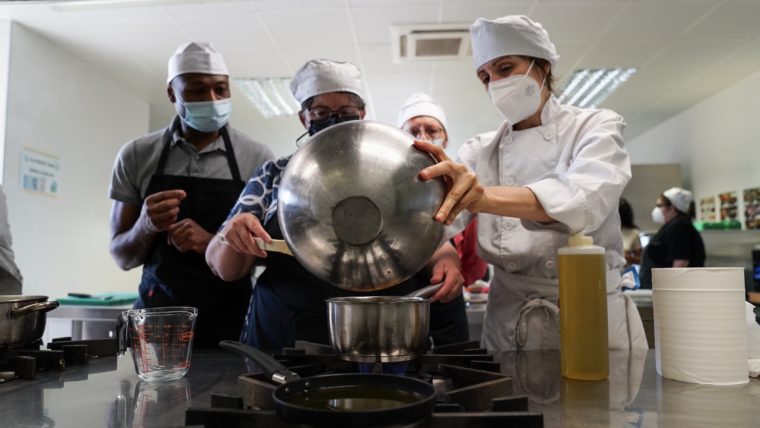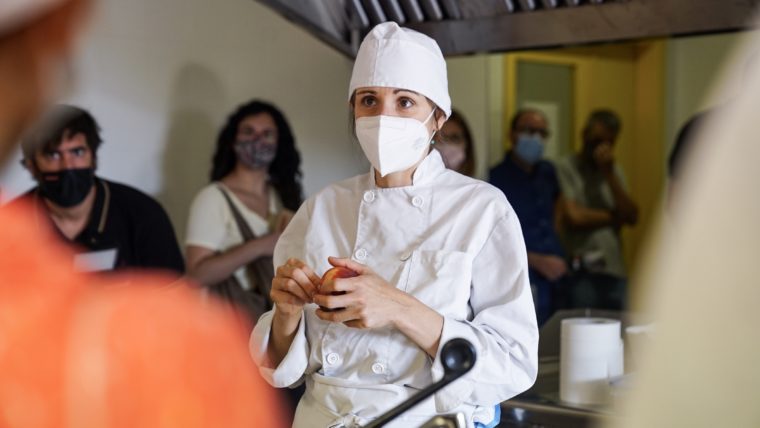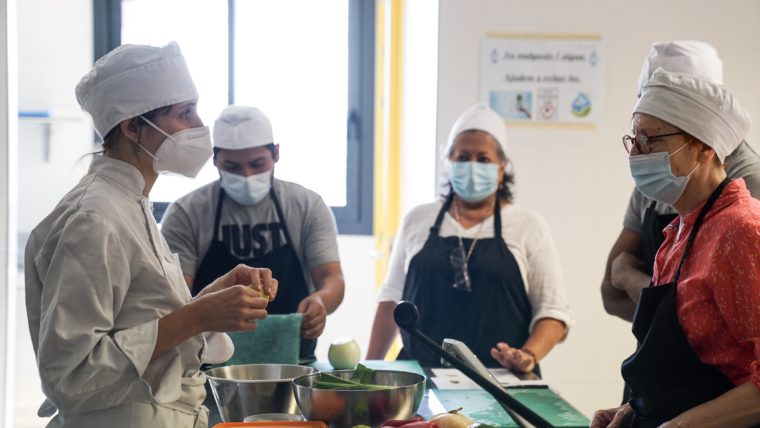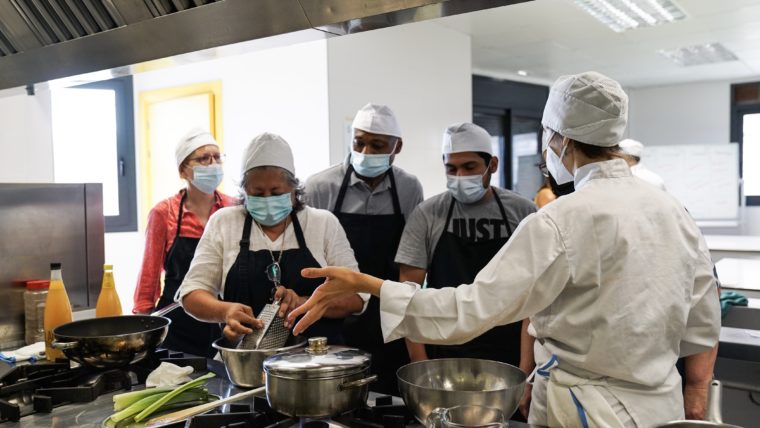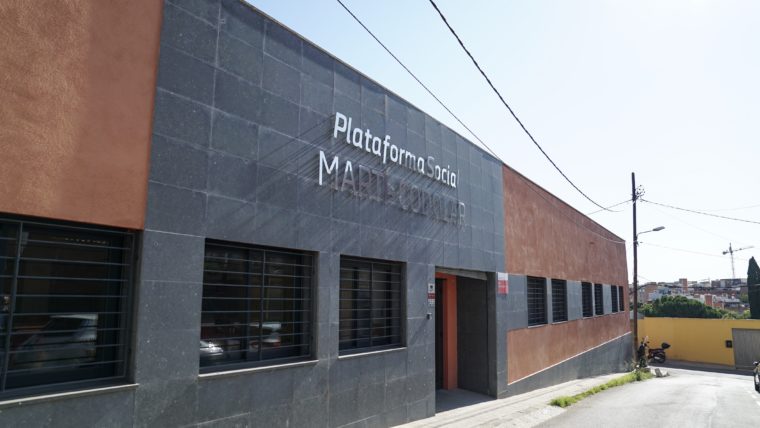Alimenta: community kitchens to guarantee the right to healthy food
The first two community kitchens in the Alimenta project are now up and running. The goal is to provide access to decent, healthy and sustainable food for people in vulnerable situations. Currently in its pilot stage, and with two more kitchens to open in October, the goal of the project is to help empower a hundred users, boosting their autonomy and contributing to their community and labour inclusion.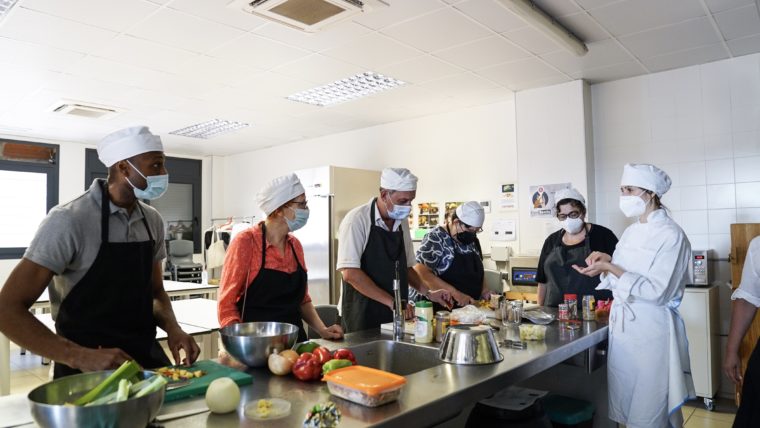
The first four Alimenta spaces, which include community kitchens and training workshops, are:
- Espai Alimenta Jovent: managed by the Fundació Privada Jovent and providing service for the Carmel, Teixonera and Vall d’Hebron neighbourhoods. Now operative.
- Espai Alimenta Gregal: managed by Menjador Solidari Gregal, providing for people in the neighbourhood of El Besòs i el Maresme.
- Espai Alimenta Roure: managed by the Fundació Roure, this kitchen will start operating in October and provide for the Gòtic neighbourhood and the old quarter.
- Espai Alimenta Norai: managed by the cooperative Impulsem to help people in the Raval neighbourhood. To open in October.
The Alimenta project seeks to promote a new social support model which goes beyond assistance-based support, instead fostering personal autonomy and self-organisation with food purchasing, for instance through collective purchasing. The model also promotes the use of Alimenta facilities for cooking, eating, growing, learning, relating to others, establishing social ties and getting guidance on work. The project will also promote action to combat the stigma of financial hardship or housing difficulties (for instance, sub-letting rooms with a right to use the kitchen), combat food waste and promote local consumption.
Government measure as the World Sustainable Food Capital 2021
The initiative is part of the government measure on social innovation and is inspired by the principles of the Citizen Agreement for an Inclusive Barcelona, specifically those promoted by the Network for the Right to Adequate Food (XDAA) in Barcelona. The project also fits in with the values of the World Sustainable Food Capital 2021, as it promotes a good diet for people’s health, for the planet and for the vitality of the local economy, based on fresh, seasonal, organic local produce.
More food provision
The project has an initial budget of 275,000 euros, adding another resource for the city to guarantee people’s right to food. In 2020, in response to the socio-economic crisis caused by Covid-19, the City Council boosted its food provision operations considerably to reach nearly 50,000 people. Over 28,000 subsidies were awarded, worth 6.46 million euros in all, compared to the 7,700 subsidies and 1.26 million euros from the previous year. More than 557,000 meals were also provided through soup kitchens, helping 17,500 people (+16%). Over 430,000 meals were provided through special operations set up in response to Covid-19, while 1.2 million meals were provided through home delivery or accompanied meal services. Emergency meal subsidies currently triple those provided by social services before the pandemic.
